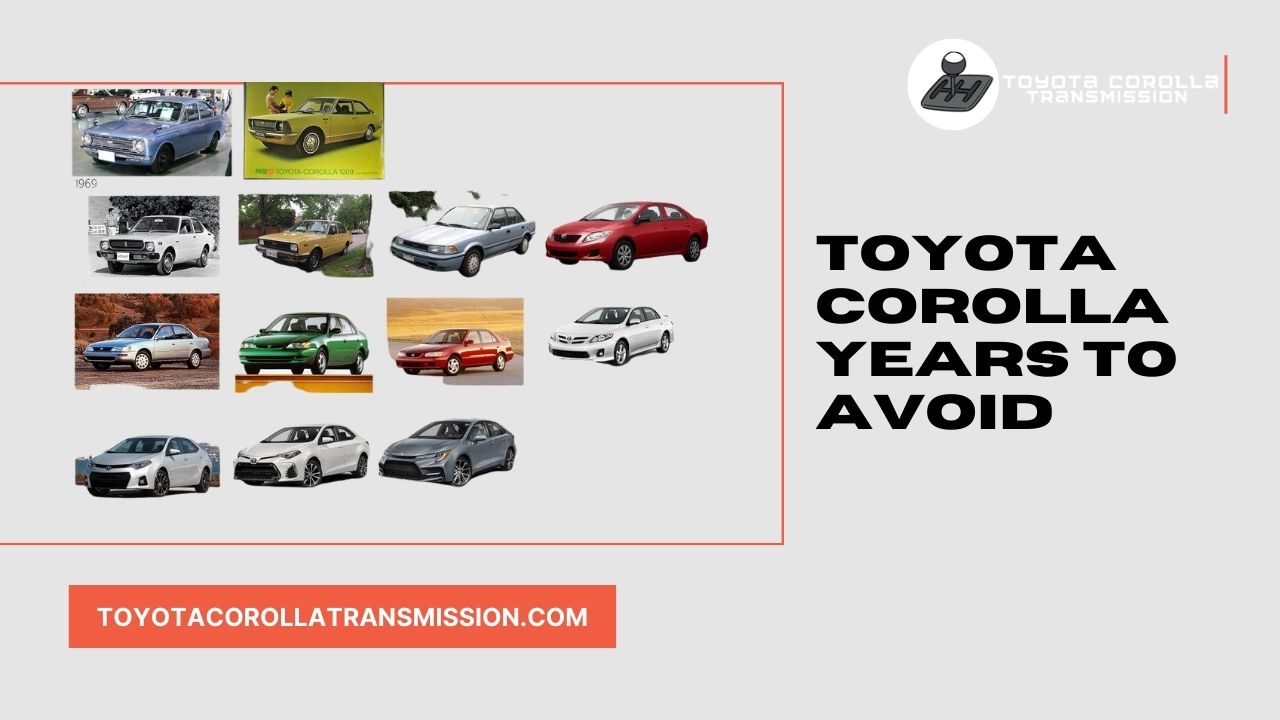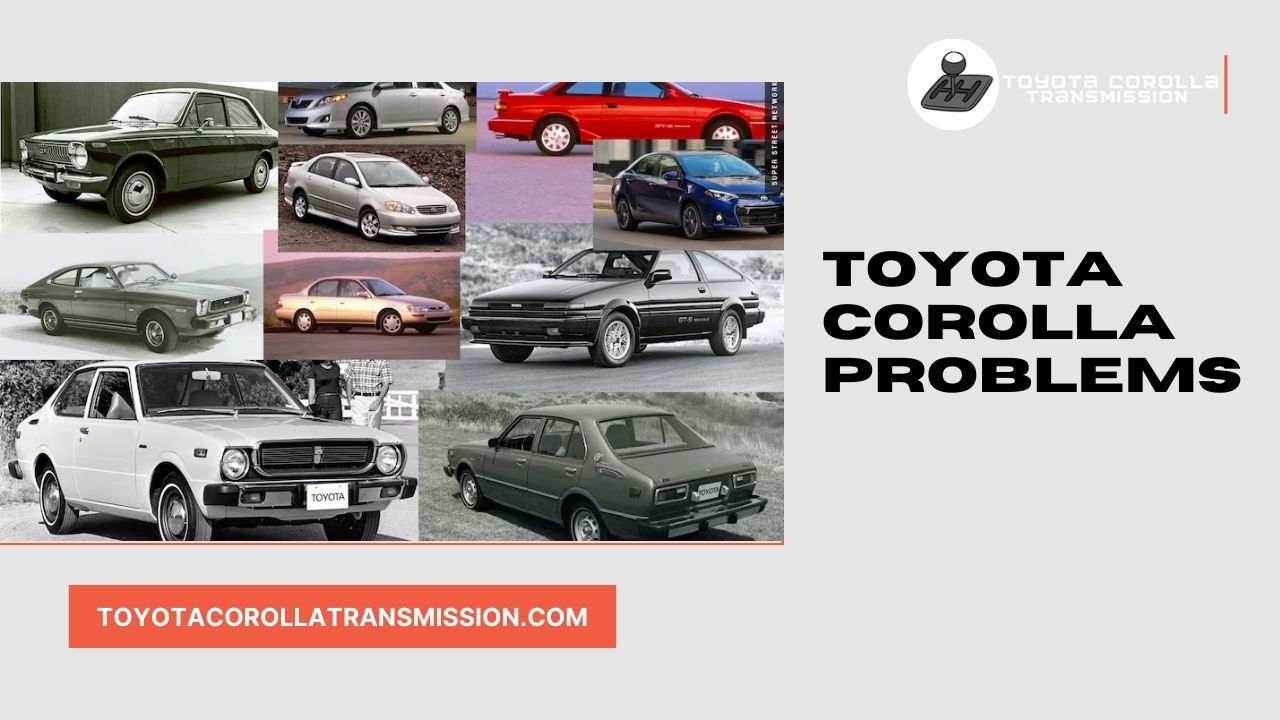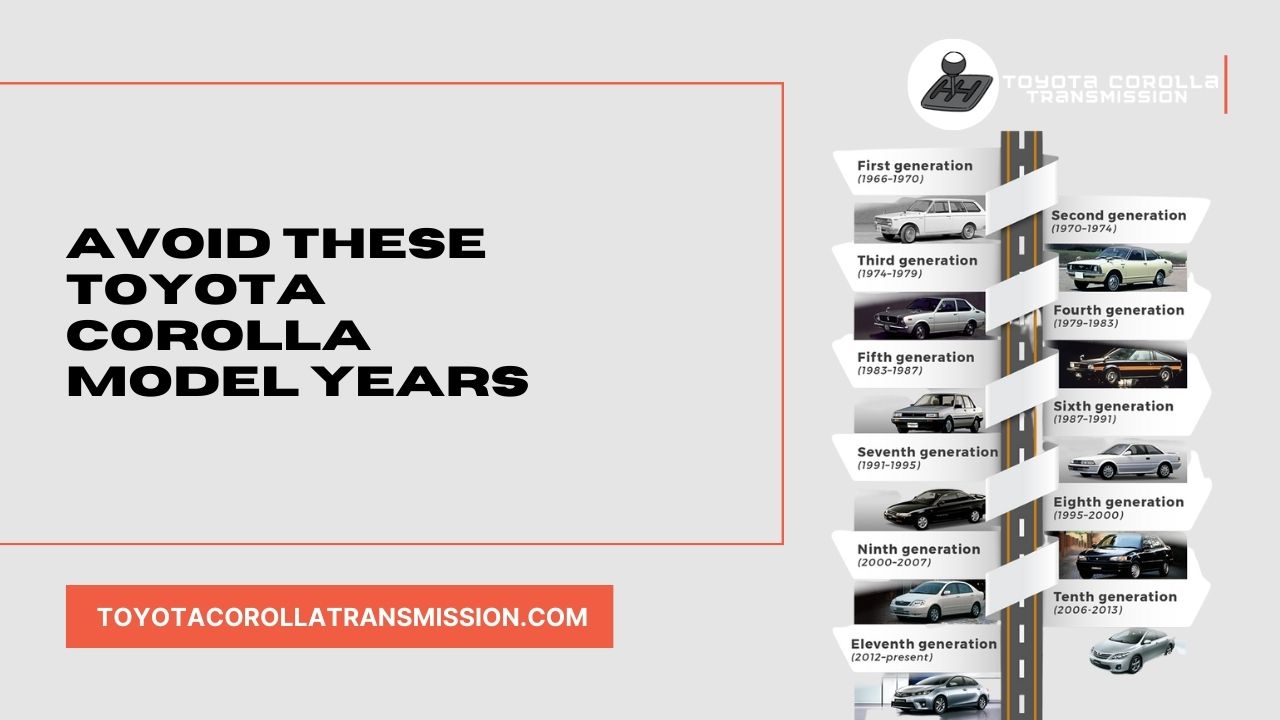Since its inception in 1966, the Toyota Corolla has garnered a reputation as one of the best-selling cars in history, with a staggering 44 million units sold by 2016. However, debates arise concerning whether all the Corolla variations should be counted as one model. Nevertheless, it has established itself as an affordable and dependable vehicle.
Yet, even with its commendable reputation, the Corolla is not exempt from flaws. Certain years have experienced a fair share of issues, while others boast cleaner service records. CoPilot will guide you on which model years to steer clear of if you are in the market for a used Toyota Corolla.
Avoiding the 2000, 2001, 2002, 2003, 2009, and 2014 Toyota Corolla models is advisable.
These vehicles have had their fair share of problems, primarily concerning excessive oil consumption in the engine. This issue was more prevalent in 2000, 2001, 2002, and 2009 models, although it also surfaced in the 2014 model year. The 2003 and 2009 models also faced transmission troubles, with the latter witnessing frequent water pump failures, leading to cooling issues. Moreover, minor problems like body and paint issues and interior accent flaws are more common in these specific model years.
So, which model years of the Toyota Corolla are deemed safe for a used purchase?
Many years exhibit fewer reported problems and are considered reliable choices:
- 1984 to 1999
- 2004 to 2008
- 2011 to 2020
Although Corolla production traces back to 1966, our data only spans from 1984 onwards. During this time frame, most years have registered relatively few issues, primarily minor ones such as chipping paint. Notably, from 1984 to the end of the 20th century, there were fewer than 100 total complaints lodged against the model, a remarkable feat considering its substantial sales volume, which reached at least 10 million units, as per Toyota’s records.
However, these models were only partially flawless. Some older models occasionally complained about engines running rough or overheating and transmitting issues.
Nevertheless, until around 1998, the predominant problems revolved around issues like air conditioning unit or door seal leaks and malfunctioning interior lights. These vehicles, particularly the AE80, AE90, and AE100 generations from 1983 to 1995, were originally built to endure and serve their owners faithfully for extended periods.
While expecting 25 to 35 years from a daily driver might be a tall order, these cars have proven longevity. Although they might be harder to come by today, stumbling upon one could be akin to finding a hidden gem. Even though oil consumption problems began to surface in the 1998 and 1999 models, there were no Toyota Corollas to avoid in your search for a used car before the 2000 model year.

The models produced from the 2004 model year until 2008 marked a welcomed return to form for the iconic Toyota traveler. Regrettably, the years between 2000 and 2003 grappled with numerous reliability issues. However, more detailed explanations are forthcoming.
A few years witnessed reports of peculiar engine noises and some reported acceleration issues, particularly aggressive surges in the 2006 model. However, these issues were relatively isolated in each respective year. The most common complaints during this period revolved around exterior paint quality and the sporadic activation of the check engine light. While these problems are undesirable, you should consider these model years.
Except for the 2009 model, most Corollas produced since then have proven reliable rides. The only notable issue since then has involved the accelerator engaging unexpectedly, leading to potential safety hazards. Thus, it’s advisable to steer clear of the 2011, 2013, and 2017 models to avoid this risk. It’s worth noting that even in these model years, this issue remained relatively rare and typically happened early in the car’s lifespan.
Beyond this rare and severe problem, the most common complaints concerning recent models related to grinding brakes, which can shorten their lifespan, and issues with the cabin’s build quality. These issues encompass minor inconveniences like dashboard cracks, lock troubles, and interior rattling noises. The 2014 model, in particular, was plagued by multiple reports of radio malfunctions.
To summarize, certain Toyota Corolla model years should be cautiously approached. Specifically, it’s advisable to avoid the following years:
- 2000
- 2001
- 2002
- 2003
- 2009
- 2014
The most recurrent issue that has plagued the Toyota Corolla is excessive oil consumption, particularly severe from 2000 to 2002, during which there were 124 complaints about excessive oil usage. While this may sound fine, repairing it can cost around $2,500 or even more costly. Neglecting this problem could lead to additional wear and tear if the oil level drops too low and catches you unprepared.
2009, this problem resurfaced with an astonishing average repair cost of $4,500. Although it was not as widespread in the intervening years, the 2003 model faced significant transmission failures, necessitating repairs costing at least $1,000. Given these issues’ prevalence and potential expense, it’s prudent to exercise caution.
Common Toyota Corolla Problems:

Despite its legendary reputation for reliability, the Toyota Corolla has faced various issues across different model years. Here are the top problems that Corolla owners should be aware of:
- Excessive oil consumption: Owners have reported that their Corolla engines consume excessive oil, a problem that has predominantly affected the 2002 and 2009 model years, even in relatively new vehicles. Remedies range from using thicker oil to replacing piston rings, with the most expensive fix involving engine replacement, which can cost anywhere from $2,600 to $5,000.
- Faulty transmission: Despite regular maintenance, Corolla owners have experienced unexpected transmission failures, often accompanied by clunking and grinding noises before their cars halt. The 2003 Corolla appears to be the worst hit, and repairing or replacing the transmission can cost upwards of $1,200.
- Slow engine startup: Some Corolla owners have encountered slow startup, typically between 100,000 and 125,000 miles. This issue is commonly attributed to a faulty starter, necessitating a starter solenoid replacement. It is most prevalent in the 2015 Corolla.
- Lit check engine light: A common issue spanning 1998 to 2016 Corolla models is the illumination of the check engine light due to problems with the evaporative emission (EVAP) system. Potential causes include a faulty gas cap or charcoal canister failure.
- Musty and moldy A/C system: Numerous Toyota vehicles have suffered from defective HVAC systems, leading to a musty or moldy odor emanating from the air conditioning system. This not only impacts interior air quality but can also pose health concerns for occupants. This issue is particularly common in older Corollas, although 2009 Toyota vehicles have also received similar complaints, resulting in legal action against Toyota.
- Soy coating attracting rodents: Toyota employed soy-coated electrical wire coating to be more eco-friendly and cost-effective. However, rodents found these materials highly attractive for nest building, resulting in damage costing owners between $2,000 and $9,000, as it is typically not covered by warranty.
- Faulty mass airflow sensor: Model years from 1998 to 2010 reportedly experienced defective mass airflow sensor issues. The sensors require frequent cleaning, as neglecting this maintenance can affect the vehicle’s performance and acceleration and may trigger the check engine light. The most common remedy is to replace the sensor.
In conclusion, while the Toyota Corolla boasts a reputation for reliability, it’s essential to be aware of the specific problems associated with various model years to make an informed choice when purchasing one.
FAQs About Avoid These Toyota Corolla Model Years
Are Toyota Corollas typically reliable?
The Toyota Corolla enjoys a well-deserved reputation for reliability, with over 50 million units sold worldwide. It is a popular choice for those seeking dependable and efficient transportation. However, exercising caution and selecting your Corolla model year wisely is crucial, as some years from the 2000s have proven problematic.
How much does a used Toyota Corolla typically cost?
The solid reputation of the Toyota Corolla often translates into higher prices in the used car market. This phenomenon has been exacerbated by limited supply and higher interest rates, especially during the COVID-19 pandemic. Used Corollas now command higher prices than in pre-pandemic times. For instance, an average 2009 Toyota Corolla has an asking price of $8,939, significantly higher than it would typically cost. Even newer models come with elevated price tags; a 2019 Corolla, for example, costs $20,113, approximately one-third higher than its value in a regular market.
Is the Toyota Corolla a good car to purchase?
Certainly, the Toyota Corolla is an excellent choice for those searching for reliable transportation that doesn’t entail excessive maintenance and repair costs. However, it’s advisable to research the most dependable model years for a more satisfying ownership experience.
